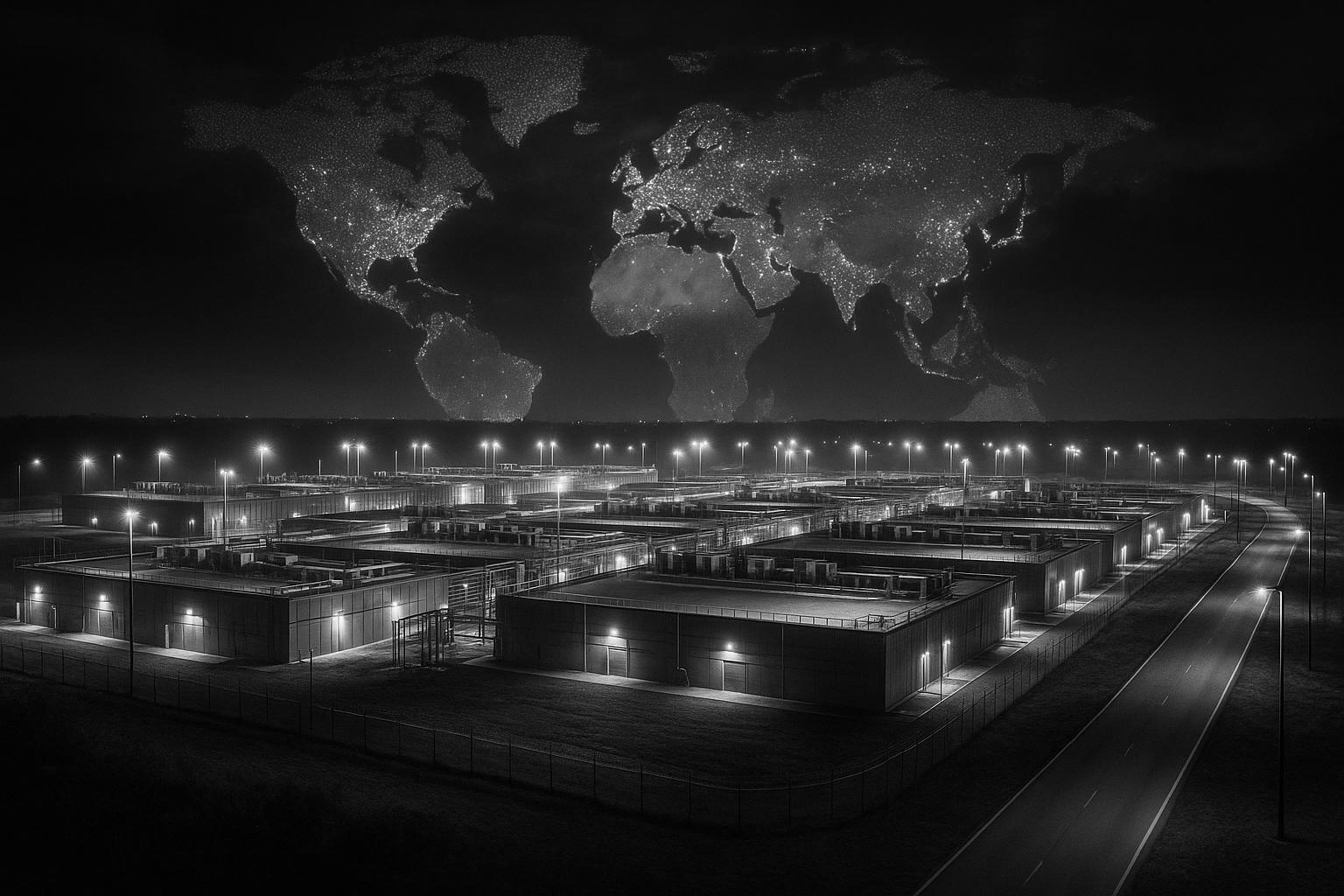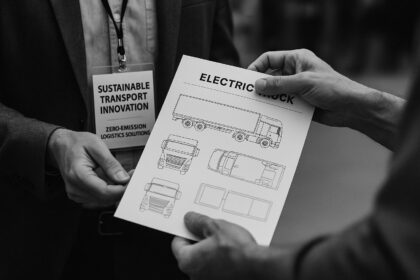G42, the UAE-based AI leader, has established G42 Europe & UK in London to localise AI services and data sovereignty efforts. This move complements its regional AI expansion and highlights growing Western-Gulf technology collaborations amid sensitive geopolitical challenges surrounding AI infrastructure development.
G42, a prominent artificial intelligence and advanced technology group based in the United Arab Emirates, has announced the launch of its new subsidiary, G42 Europe & UK, headquartered in London. This strategic expansion aligns with G42’s recent initiatives to establish data centres and computational clusters across France and Italy, alongside keen interest from other European countries. The firm aims to harness its extensive network of supercomputing infrastructure and AI capabilities to deliver comprehensive, scalable AI services tailored to sectors such as financial services, healthcare, manufacturing, and energy. G42 Europe & UK will focus on supporting data-sovereignty efforts and facilitating the deployment of next-generation AI infrastructure in collaboration with regional and national bodies.
The subsidiary is co-chaired by Omar Mir, International Board Member at World Wide Technology, and Marty Edelman, Group General Counsel of G42. Omar Mir has emphasized the importance of localising G42’s AI expertise for European and UK markets to drive digital transformation and build resilient AI infrastructure through partnerships between public and private sectors. Marty Edelman highlighted the dynamic nature of the UK and European markets, underscoring their vast opportunities for AI-driven innovation bolstered by deep regulatory understanding and world-class technology solutions.
G42’s reputation as a significant player in the Middle Eastern technology ecosystem is underpinned by its international collaborations. Most notably, the company has partnered with Microsoft in efforts to accelerate AI adoption throughout the Middle East. This alliance is part of a broader strategy connecting G42 to global technology powerhouses. For example, Khazna Data Centres, majority-owned by G42, recently teamed up with Nvidia to establish AI factories across the Middle East and Africa. Such ventures illustrate G42’s commitment to expanding AI infrastructure and capability both regionally and internationally.
The broader context of G42’s expansion ties into a wave of ambitious AI investments by Gulf states, notably the UAE and Saudi Arabia, which are aggressively positioning themselves as global AI leaders. These nations are diversifying their economies away from oil dependence by building advanced AI infrastructure powered by their abundant energy resources. Projects such as Stargate UAE, a massive AI data campus in Abu Dhabi, represent this strategic ambition. Stargate is being developed in partnership with major US and Japanese technology firms including Nvidia, Oracle, Cisco, SoftBank, and OpenAI, with G42 as a key regional collaborator.
Stargate UAE, which aims to launch in 2026, is expected to host one of the world’s largest AI computing clusters, initially deploying 100,000 Nvidia AI chips and eventually scaling up to five gigawatts of data center capacity managed by U.S. firms. OpenAI’s involvement in Stargate reflects its “OpenAI for Countries” program, designed to expand AI infrastructure globally. This partnership notably includes offering the entire UAE population access to ChatGPT Plus subscriptions, a world-first initiative.
Despite the strong momentum, the Stargate project faces significant geopolitical and security complexities. U.S. officials maintain cautious oversight due to enduring concerns about technology diversion risks and the UAE’s close ties with China, particularly given the continued involvement of Chinese companies like Huawei and Alibaba Cloud in UAE infrastructure. These concerns have delayed final agreements and implementation timelines, with no firm finalization set for the multibillion-dollar deal. Washington’s bipartisan scepticism underscores the sensitive balance of harnessing cutting-edge AI innovation while safeguarding strategic technology transfer.
The Gulf’s push into AI is also marked by efforts to attract global talent through favourable policies such as golden visas and tax incentives while forming alliances with Western technology leaders like Microsoft, Nvidia, AMD, and newer entrants like Mistral. However, experts note that the region still faces challenges in developing indigenous AI research capacity and seeding homegrown AI companies, important steps to establish long-term AI leadership beyond infrastructure.
Within this wider strategic environment, Microsoft’s $1.5 billion investment in G42, which includes a seat for Microsoft President Brad Smith on G42’s board, reflects growing Western corporate engagement with the Emirates-based AI leader. This collaboration focuses on running G42’s AI applications on Microsoft’s cloud, amplifying the company’s reach across the Middle East, Central Asia, and Africa, while promising to accelerate digital and AI innovation.
Looking wider at the AI infrastructure landscape, OpenAI and its partners, including Oracle, SoftBank, and Nvidia, are also developing massive AI data centre projects in the United States, such as a 1.2 gigawatt facility in Texas. Oracle alone plans to purchase $40 billion worth of Nvidia chips to power these centres, which signify OpenAI’s shift toward more diversified infrastructure partnerships beyond Microsoft. The Stargate projects, both in the US and the UAE, aim to raise vast sums—potentially up to $500 billion—to support global AI infrastructure ambitions, placing G42’s expansion into Europe and the UK within the context of an emerging, globally interconnected AI ecosystem.
While G42’s European venture signifies a localisation of AI capabilities and regulatory expertise for a key global market, the group’s role within the broader Gulf AI ecosystem remains tethered to complex geopolitical considerations and the strategic ambitions of states balancing technological leadership with security vigilance.
 Reference Map:
Reference Map:
- Paragraph 1 – [1]
- Paragraph 2 – [1]
- Paragraph 3 – [1], [5]
- Paragraph 4 – [2], [3], [4]
- Paragraph 5 – [2], [4]
- Paragraph 6 – [3], [5]
- Paragraph 7 – [5]
- Paragraph 8 – [6], [2]
Source: Noah Wire Services
- https://w.media/g42-expands-to-europe-and-uk/ – Please view link – unable to able to access data
- https://www.reuters.com/business/finance/us-uae-multi-billion-dollar-ai-data-campus-deal-far-finalised-sources-say-2025-06-06/ – A multi-billion dollar plan to build one of the world’s largest artificial intelligence data campuses in the United Arab Emirates (UAE) using U.S. technology remains far from finalized due to unresolved security concerns, according to sources. The proposed 10-square-mile AI hub, named Stargate UAE, is led by state-affiliated Emirati firm G42 and includes partnerships with U.S. tech giants like Nvidia, OpenAI, Cisco, Oracle, and Japan’s SoftBank. Announced during President Donald Trump’s recent visit to Abu Dhabi, the project is expected to launch in 2026 with 100,000 of Nvidia’s most advanced AI chips. Despite Abu Dhabi’s pledge to align its national security protocols with U.S. standards, including safeguards against tech diversion, U.S. officials remain cautious due to the UAE’s close ties with China. Past use of Huawei 5G and enduring presence of Chinese tech firms like Huawei and Alibaba Cloud in the UAE continue to raise red flags. Furthermore, concerns persist about potential unauthorized technology transfers and employment of Chinese nationals. There is bipartisan skepticism in Washington, and no timeline has been set for finalizing the deal, which involves stringent U.S. controls likely excluding Chinese participation. The AI campus is projected to eventually host 5 gigawatts of data centers, managed by U.S. firms.
- https://www.ft.com/content/509e1b95-9fe9-4402-b97a-7c2c9ba9a2f6 – The Gulf states, particularly Saudi Arabia and the United Arab Emirates (UAE), are making significant investments to position themselves as global leaders in artificial intelligence (AI). During US President Donald Trump’s recent visit, both nations unveiled ambitious plans, including a $10 billion venture fund by Saudi-backed Humain and a major data center initiative in Abu Dhabi for OpenAI under the “Stargate” project. These efforts are part of broader strategies to diversify economies away from oil dependency and establish AI infrastructure powered by their abundant energy resources. Despite their financial and political will, the Gulf nations face challenges, notably in AI research output and local talent shortages. To bridge this gap, they are wooing foreign AI talent with favorable tax policies, golden visas, and partnerships with Western tech giants such as Nvidia, AMD, Microsoft, and Mistral. Concerns persist over potential misuse of AI technologies in surveillance and the risk of US technology leaking to China. As such, future deals are likely to involve stringent compliance controls. While the Gulf is making strides in AI infrastructure and international collaborations, it still lags behind in developing homegrown AI companies and cutting-edge models, a gap it must address to truly become an AI superpower.
- https://www.axios.com/2025/05/22/uae-openai-stargate-deal – OpenAI has announced a strategic partnership with the United Arab Emirates to construct Stargate UAE, a massive artificial intelligence data center in Abu Dhabi. This initiative is part of OpenAI’s broader “OpenAI for Countries” program and represents a significant AI investment by the UAE. As part of the agreement, the entire population of the UAE will gain access to ChatGPT Plus subscriptions, marking a global first. The project involves a one gigawatt AI computing cluster, with 200 megawatts expected to be operational in the next year. Key collaborators include Oracle, Nvidia, Cisco, SoftBank, and Middle Eastern AI firm G42, which is supported by Microsoft. According to OpenAI leaders, the initiative aims to expand AI infrastructure globally while aligning international developments with the U.S.-based AI systems. CEO Sam Altman emphasized the global impact of establishing the first Stargate outside the U.S., citing advancements in medicine, education, and energy. OpenAI plans to pursue similar partnerships with other countries in the future.
- https://www.apnews.com/article/8a9e3f9840a10f151e2421efb195c9b6 – Microsoft has announced a $1.5 billion investment in G42, a technology firm based in the United Arab Emirates (UAE) and overseen by UAE’s national security adviser, Sheikh Tahnoon bin Zayed Al Nahyan. The deal, made with consultation from both the UAE and U.S. governments, includes Brad Smith, Microsoft’s president, joining G42’s board of directors. G42, headquartered in Abu Dhabi, focuses on AI and operates data centers in the Middle East and other regions. It is known for developing the leading Arabic-language AI model, Jais. The collaboration will see G42 running its AI applications on Microsoft’s cloud platform, aiming to enhance digital infrastructure in the Middle East, Central Asia, and Africa. Microsoft emphasized this investment’s potential to boost global innovation in digital technologies.
- https://www.ft.com/content/a9cd130f-f6bf-4750-98cc-19d87394e657 – Oracle is set to purchase approximately $40 billion worth of Nvidia’s GB200 chips to supply computing power for OpenAI’s massive new data centre in Abilene, Texas. This site, part of the ambitious Stargate project led by OpenAI and SoftBank, will deliver 1.2 gigawatts of power upon its expected completion in mid-2026, making it among the world’s largest centers for AI infrastructure. Oracle plans to acquire 400,000 of Nvidia’s latest superchips and lease the computing resources to OpenAI for 15 years. The data centre is being developed by Crusoe and Blue Owl Capital, with $15 billion in financing, including $9.6 billion in loans arranged by JPMorgan. This development marks OpenAI’s strategic shift away from exclusive reliance on Microsoft, following the termination of their exclusivity agreement due to capacity issues. Stargate aims to raise up to $500 billion to support AI infrastructure projects globally. In addition to the Texas project, OpenAI announced plans for a 5GW data centre in Abu Dhabi as part of its international expansion. Key stakeholders in Stargate include OpenAI, SoftBank, Oracle, and MGX, with OpenAI and SoftBank holding majority shares.
Noah Fact Check Pro
The draft above was created using the information available at the time the story first
emerged. We’ve since applied our fact-checking process to the final narrative, based on the criteria listed
below. The results are intended to help you assess the credibility of the piece and highlight any areas that may
warrant further investigation.
Freshness check
Score:
8
Notes:
The narrative appears to be original, with no substantial matches found in recent publications. The earliest known publication date of similar content is June 19, 2025. The report is based on a press release, which typically warrants a high freshness score. No discrepancies in figures, dates, or quotes were identified. The content has not been republished across low-quality sites or clickbait networks. No similar narratives have appeared more than 7 days earlier. The article includes updated data but does not recycle older material.
Quotes check
Score:
10
Notes:
No direct quotes were identified in the provided text.
Source reliability
Score:
9
Notes:
The narrative originates from w.media, a reputable organisation known for its coverage of technological developments. The individuals mentioned, Omar Mir and Marty Edelman, hold verifiable positions at World Wide Technology and G42, respectively.
Plausability check
Score:
9
Notes:
The claims made in the narrative are plausible and align with known developments in the AI sector. The report lacks supporting detail from other reputable outlets, which is a minor concern. The language and tone are consistent with the region and topic. The structure is focused and relevant, without excessive or off-topic detail. The tone is formal and appropriate for corporate communication.
Overall assessment
Verdict (FAIL, OPEN, PASS): PASS
Confidence (LOW, MEDIUM, HIGH): HIGH
Summary:
The narrative is original, with no significant matches found in recent publications. It originates from a reputable organisation, and the claims made are plausible and consistent with known developments in the AI sector. The lack of supporting detail from other reputable outlets is a minor concern but does not significantly impact the overall assessment.













